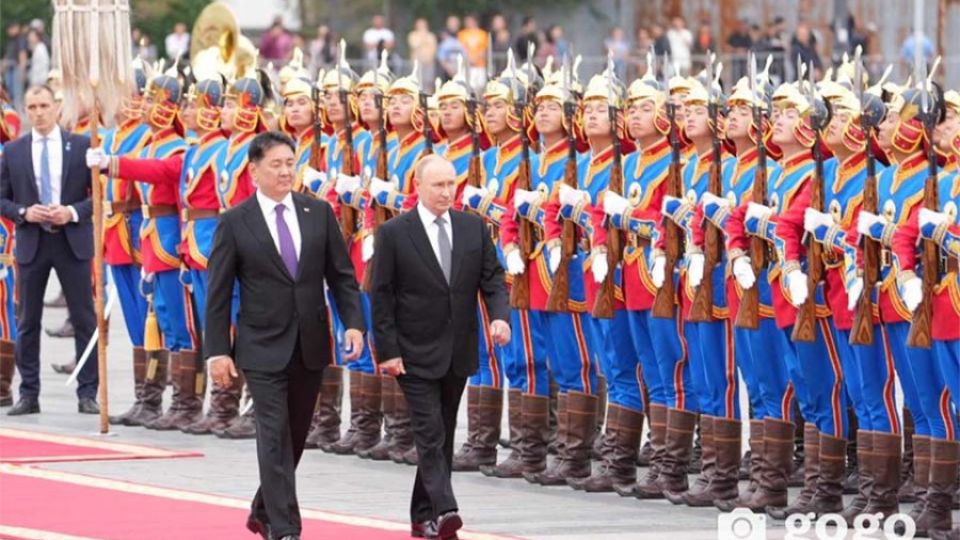September 4, 2024
ULAANBAATAR – Mongolia, the country that captured the world’s attention online with its unique uniform for the Olympians in Paris 2024, has once again drawn global interest with Putin’s visit. Needless to say, we are all aware that the International Criminal Court (the “ICC”) issued a warrant for his arrest in 2023 regarding the war crimes he allegedly committed, and Mongolia is a State Party to the Rome Statute (the “Statute”). It is also unquestionable that his arrest is crucial to the case, as the ICC is prohibited from conducting trials in absentia.
Subsequently, while many Mongolians believe that Putin should be arrested for the unspeakable crimes he has allegedly committed (though with considerable hesitation about whether the arrest should take place on Mongolian soil), it is clear that there are also many pro-Putin supporters. Yet, citizens and activists attempting to peacefully assemble to express their opinions and stands against Putin, despite the ‘unavoidable’ threat from authorities, including the police, should definitely be highlighted here.
On a separate note, some people, including young media representatives, are attempting to justify Mongolia’s inaction regarding the arrest by considering the country’s geopolitical position and national interests, which involve national security, energy, exports and imports, and more. It is arguably hard to blame them for bringing such arguments to public attention.
That said, this article attempts to focus on the issue from a legal perspective, examining Mongolia’s obligations regarding the arrest, the consequences of non-compliance, and the potential support available in a situation where a ‘not-so-powerful’ country is involved in the arrest of a leader from a world power.
First of all, regarding the nature of the arrest warrant, Article 58.1 of the Rome Statute (the “Statute”) makes it clear that a high threshold is required for the ICC to issue such a warrant. In particular, there must be reasonable grounds to believe that the person in question has committed a crime within the jurisdiction of the ICC, specifically war crimes. Furthermore, per Article 58.2 of the Statute, the prosecutor’s application must contain a concise statement of the facts alleged to constitute the crimes in question, a summary of the evidence, and any other information that establishes reasonable grounds to believe that the person has committed those crimes, as well as the reason why the prosecutor believes that the arrest is necessary.
Such a warrant is necessary to ensure the person’s appearance at trial due to the prohibition of trials in absentia, as mentioned earlier. It also serves to ensure that the person in question does not obstruct or endanger the investigation or court proceedings, or continue committing that crime or related war crimes within the jurisdiction of the ICC that arise from the same circumstances.
Upon the issuance of a warrant of arrest, per Article 59.1 of the Statute, a State Party that has received a request for arrest shall immediately take steps to arrest the person in question in accordance with its laws and the provisions of Part 9 of the Rome Statute regarding ‘International Cooperation and Judicial Assistance’ of State Parties.
In other words, the condition precedent for the State Party’s mandatory cooperation in an arrest is a written request transmitted to them through diplomatic channels or any other appropriate channel as may be designated by the State Party (§87.1(a) & §91.1 of the Statute).
Subsequently, provided that the request was transmitted officially, where a State Party fails to comply with a request to cooperate by the Court, contrary to the provisions of the Statute, thereby preventing the Court from exercising its functions and powers under the Statute, the Court may make a finding to that effect and refer the matter to the Assembly of States Parties (as specified in Part 11 of the Statute) or, if the Security Council referred the matter to the Court, to the Security Council (§ 87.7 of the Statute).
However, there are a few relevant points that should also be considered. For instance, just as the details of the arrest warrant are confidential and shall not be published per Article 57.3(c) of the Statute, the requested State must keep the request for cooperation and any documents supporting the request confidential, except to the extent that disclosure is necessary for the execution of the request (§ 87.2 of the Statute).
The point of mentioning confidentiality here is that it is impossible for us to know whether the ICC has officially transmitted any request to Mongolia. Therefore, we cannot determine whether Mongolia is ‘actually’ and ‘legally’ obliged to carry out the arrest according to the ICC warrant and the Statute. On the other hand, while the Statute addresses provisions for support from State Parties to the ICC regarding arrest and similar matters, it should also be highlighted that the Statute neglects cases where less powerful countries might need support from the ICC or other bodies while acknowledging that many other international law principles must also be considered when discussing such a sensitive topic.
In the end, what frustrates many of us is whether our leaders, including the ruling party, the President, and the Minister of Foreign Affairs, have made their best effort to avoid creating this chaotic situation for the people of Mongolia and for the many people and countries closely watching the situation, rather than treating this visit as a routine exercise between the two countries that occurs every five years, even before the war between Ukraine and Russia. At last, as a democratic country that is obliged under international covenants to respect and ensure the exercise of the right to freedom of speech and peaceful assembly, the authorities should have allowed its citizens to express their opinions regardless of who the visitor is.

